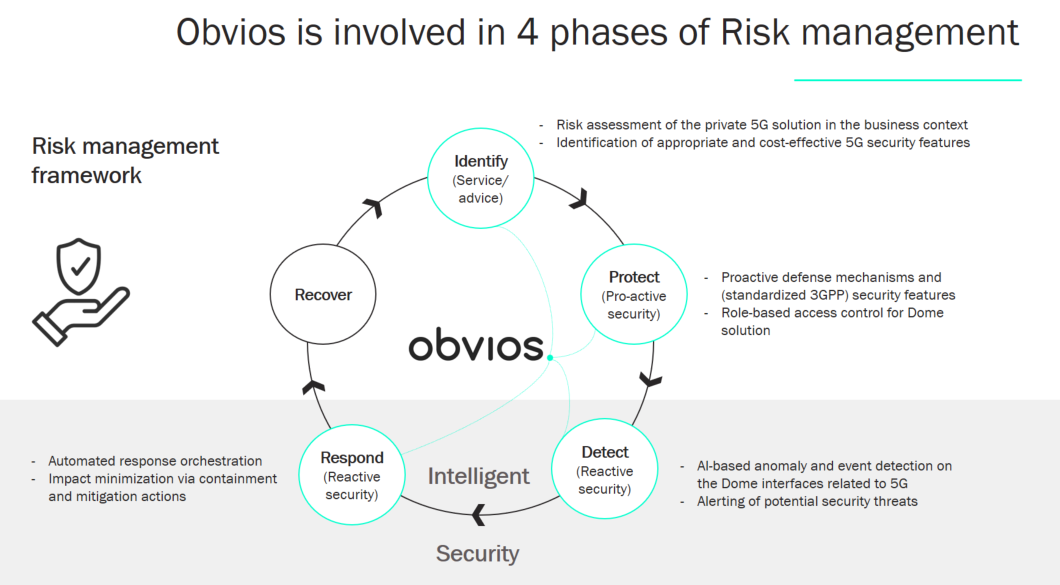Security that goes beyond the 5G standard
5G technology is natively more secure than 4G or other radio technologies, thanks to features such as protection of user data integrity, concealment of the subscriber's identity, and support for 256-bit encryption keys recently introduced in the 3GPP standard.
These mechanisms are referred to as proactive in the sense that they prevent malicious actors from deploying known attack scenarios. To find out more about 5G's native cybersecurity, click here.
Nevertheless, this protection is not infallible and it is therefore important to protect the 5G core network against attacks that could exploit previously undetected vulnerabilities.

Reactive protection
With its Intelligent Security solution, Obvios enhances Dome with ‘reactive’ security mechanisms:
- A signature-based detection system using IDS/IPS solutions (Intrusion Detection System and Intrusion Prevention System),
- A complex attack detection system based on Artificial Intelligence models.
It is important to note here that the signature database, containing several tens of thousands of entries, is constantly updated as new vulnerabilities are discovered, and the learning models are regularly adapted and retrained to guarantee optimum prediction rates.
This unique solution, which is integrated into Dome, enables internal operating data to be analyzed at the heart of the Dome network, inaccessible to any external device so that security incidents on the 5G network can be quickly detected and remedied locally. In addition to this response capability, Intelligent Security also enhances the information collected by the company's SOC, by making available all the data relating to the security events detected, enabling holistic protection including the 5G network.
By choosing Obvios and its Dome solution, enterprises benefit from unrivaled protection for their private 5G networks.



